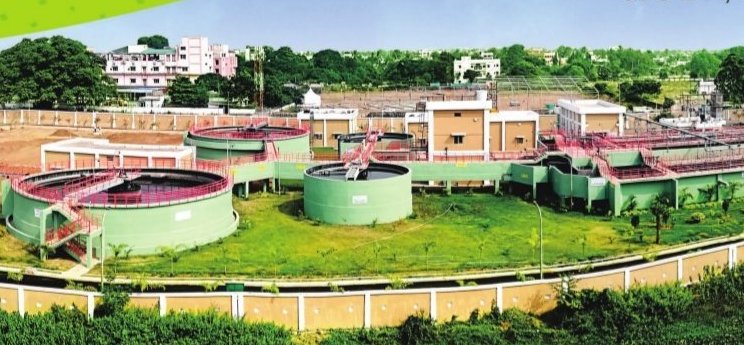
Move to set up septage plant on SC/ST medical college campus puts Kerala govt in sludge

A proposed septage treatment plant in Kerala’s Palakkad district has become the bone of contention for the state government.
The Kerala cabinet’s decision to build a 100-kilolitre septage plant on 70 cents of land belonging to the Government Medical College, Palakkad, one that is managed by the Department of Scheduled Tribe and Scheduled Caste and largely reserved for students from Dalit and tribal communities, has ignited the ire of the backward communities, students and staff of the college.
Of the 100 seats in the college, which was established in 2014, 70 are reserved for students from Dalit and tribal communities.
The college was given fifty acres of land by the state revenue department. And the college has plans for expansion, including building a Nursing College, dental college and staff quarters.
The cabinet meeting on February 2 gave the green signal to the revenue department to acquire 70 cents of land back and facilitate construction of the septage plant by the Palakkad Municipality.
The decision however goes against the order issued by the state SC/ST Commission opposing the construction of the septage plant on the campus.
In response to a complaint raised by Ponnu Kuttan, secretary of Pattika Kshema Samithi (CPM-affiliate for the Scheduled Castes), the state SC/ST Commission had issued an order restricting the use of land for purposes other than the development of medical college.
The commission examined reports filed by the revenue department, the medical college management and the Palakkad Municipality and found that the establishment of a septage treatment plant on the college campus would create hindrances in the further development of the college.
Also read: 87% of Kerala’s Covid deaths in 2021 were unvaccinated
In addition to the 70 cents of land required for the construction of the septage plant, no other construction would be possible in a 100-metre buffer area around the plant.
The SC/ST Commission stated that the existing land will not be sufficient even for the development of the medical college.
“The future course of development plan includes the construction of residential buildings as staff quarters, nursing college and dental college. The special officer of the medical college has repeatedly sent requests to the government since 2015 to give 25 acre land from the revenue department in addition to the existing land for the future development projects,” it noted.
The revenue department did not only respond positively to this demand but is now taking back a portion of the land which it had allotted.
According to the report submitted by the secretary of Palakkad Municipality, one acre and fifty cents of land was identified in another village but it was put off because of local resistance. Following this, the Municipality shifted focus to the medical college.
“According to the 2011 census, Palakkad Municipality has a population of 1.31 lakh. The population growth of the district is recorded at 7.39% . Considering this, we have to anticipate the expansion of the plant in future. This would have an adverse impact not only on the infrastructure development of the college in future but even the regular functioning of the medical college as well,” states SC/ST Commission order.
Students and parents are against the septage plant.
“We cannot allow this to happen,” said Athul, college students’ union chairman. “We all know how a septage plant run by the municipality will be managed in terms of quality. We fear that a large portion of the campus would become unusable if such a plant is constructed here.”
Also read: Kerala boy’s testimony to cops is lesson in taking sex education seriously
Athul told The Federal that the students’ union will go on strike if the government did not review the decision.
“We will challenge it legally. We are also trying to meet political leaders and mobilise support” Mohan Raj, president of Parent Teachers Association told The Federal.
The Government Medical College, named as Integrated Institute of Medical Science has reserved 70 out of 100 seats to students from Dalit and tribal communities as Palakkad has the largest population of SC and ST communities among districts in Kerala.
Dalit activists and organisations are accusing the government of indulging in a modernised expression of casteism. “If the authorities find it convenient to construct a plant for treating human excreta in a college meant for Dalit and tribal students, we call it a modernised form of casteism,” says Dinu Veyil, an Ambedkarite and an organiser of ‘DISHA Foundation’ (a non-profit organisation focusing on the education of the marginalised communities).
“Will any Government dare grab the land owned by Devaswom or any other upper caste groups to establish a septage plant? It will not happen,” says Dinu Veyil.

